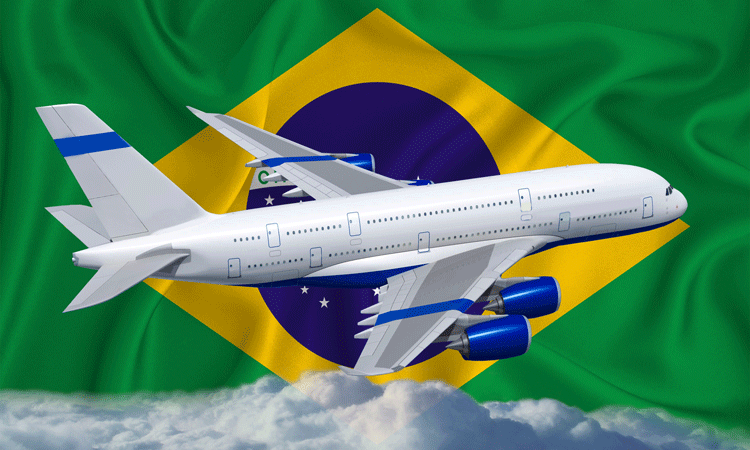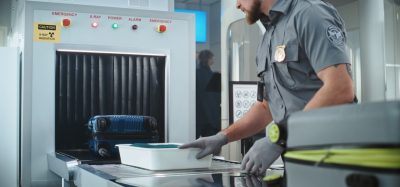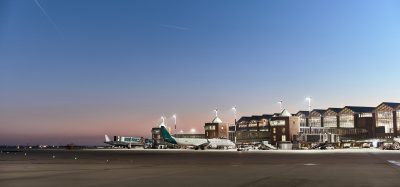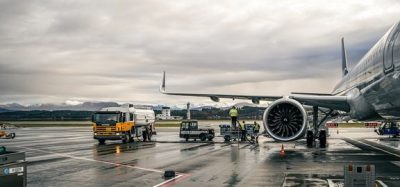Unlocking Brazil’s aviation potential
Posted: 25 June 2025 | Fábio Rogério Carvalho | No comments yet
Holly Miles spoke with Fábio Rogério Carvalho, Presidente da Aeroportos do Brasil – ABR about the potential that the Brazilian aviation market holds and the work he is doing to help the country realise its dream.


Brazil is Latin America’s largest aviation market. Aeroportos do Brasil (ABR) stands as a pivotal body in the nation’s aviation landscape, managing a significant 59 airports across Brazil and accounting for 93% of passengers and 99% of air cargo in Brazil.
Leading ABR is Fábio Rogério Carvalho, who brings a unique perspective to the role, having spent 20 years in the public sector as a regulator, working on over 100 PPP projects across various infrastructure sectors, including initial airport concessions. This past public sector experience informs his approach at ABR, where he aims to “translate our initiatives… to the private sector” and “build a solution” by bridging the gap between public expectations and private actions. The overarching priority for ABR now is clearly articulated: leveraging past investments to tackle the primary challenge – to “bring more people to aviation.”
Airport investments
The groundwork for future growth has been laid through substantial capital expenditure. Fábio highlights that more than R$50 billion has been invested into Brazil’s airports in the last two years. Consequently, Brazilian airports are now said to be in “very good condition,” with infrastructure that is “absolutely correct, and okay, safe, and beautiful, and ready to receive more and more people.” The infrastructure is well-equipped to handle increased traffic, especially as Brazil is now just returning to its 2019 passenger volumes. Looking ahead, there’s a continued commitment to development, with more than R$20 billion to invest in the next few years, according to Fábio.
Join our free webinar: Revolutionising India’s travel experience through the Digi Yatra biometric programme.
Air travel is booming, and airports worldwide need to move passengers faster and more efficiently. Join the Digi Yatra Foundation and IDEMIA to discover how this groundbreaking initiative has already enabled over 60 million seamless domestic journeys using biometric identity management.
Date: 16 Dec | Time: 09:00 GMT
rEGISTER NOW TO SECURE YOUR SPOT
Can’t attend live? No worries – register to receive the recording post-event.
Growing the aviation market in Brazil
Despite the robust infrastructure, the major obstacle identified by ABR is the need to dramatically increase air travel penetration among the Brazilian population. Fábio highlighted that “more than half of the people in Brazil never fly.” According to the International Trade Administration, there is potential for enormous growth in per capita travel capacity, which is the number of flights taken per year per person. Brazil stands at 0.5 compared to more developed markets such as Spain (4.5), the U.S. (2.6) and Chile (1.2).
Fábio describes this situation as “absolutely insane, because Brazil is a huge country. It does not make sense.” He stresses the dangers of heavy reliance on road travel, noting the “level of the accidents and deaths on the roads in Brazil is very high.” Therefore, bringing more people to aviation is viewed not just as an economic goal but as a measure that is literally saving lives and bringing more efficiency to the country. The primary reasons cited for this low penetration are “high airfares” and the negative impact of exchange rate fluctuations, particularly when the dollar is up against the Brazilian currency.
To address these challenges and stimulate demand, ABR is actively pursuing several strategic initiatives. Collaboration is crucial; ABR maintains a “very close” relationship with airlines and their associations. This partnership resulted in the signing of the Carta de Brasília with ABR (airports), airlines, IATA, ACI, and ALTA, a joint letter outlining necessary government actions to boost the industry. Efforts are focused on finding ways to reduce the costs for the airlines and attracting new carriers and routes. A significant proposal being discussed with the government is a cabotage law. This would permit foreign companies to operate domestic flights within Brazil, but crucially, under their home country’s regulations, especially regarding labour rules such as crew management. This is seen as vital for increasing competition in a market currently served by only three major airlines (Azul, GOL and LATAM Airlines), who may potentially be consolidating to just two (the Azul-GOL merger would create Latin America’s largest airline with 60% market share in Brazil).
Providing an elevated passenger experience
Beyond attracting passengers and airlines, ABR is committed to maintaining and enhancing operational aspects and the passenger experience. A high standard of quality, security, safety and passenger satisfaction has been achieved, with satisfaction ratings consistently high, around 4.6 in every airport, according to Fábio. While the passenger experience can vary depending on the specific concessionaire running the airport, ABR aims for consistency in underlying operations. A committee facilitates operational staff from the 13 different concessionaires to share experiences, challenges and how they solved them. The goal is to ensure passengers feel safe, secure and in a good environment, and have access to necessary information, storage and food options. It is also highlighted that the embarkation tax in Brazil is “the lowest in the world”, contributing to the perceived value of airlines operating from their airports.
Technology and innovation
In terms of technology and innovation, a significant project is focused on implementing biometrics for arriving passengers. This project faces challenges related to standardising technology across competing providers and creating shared databases. Discussions are underway with regulators (ANAC), security bodies (Ministry of Justice), and the Ministry of Ports and Airports to determine the “best solution to build together.” Pilot projects are currently underway at airports like Viracopos and São Paulo Guarulhos to understand how biometrics can be rolled out on a large scale.
Sustainability is another key focus area. At the end of 2024, Brazil’s Airports Ministry of Ports and Airports (MPor) launched its first ever Sustainability Policy, which ABR signed. ABR dedicated its last annual event, the airport national meeting, to ‘ESG – from vision to action’. At this event, they launched a “green book with more than 100 initiatives from ABR’s airports.”
ABR sees significant opportunities given Brazil’s scale. As the eighth economy in the world with a GDP of more than $1 trillion, there is immense untapped potential for air travel. Fábio believes there is “much more space for other airlines and for more people to fly in Brazil” and intends on working tirelessly to create state-of-the-art airports, increasing competition in the sector and advancing technology and sustainability goals to ensure his country can take its rightful place in the global aviation market.


Fábio completed the Advanced Regulatory Policy programme at George Washington University and has worked on over 100 PPP projects across highways, railways, ports and airports.
Stay Connected with International Airport Review — Subscribe for Free!
Get exclusive access to the latest airport and aviation industry insights from International Airport Review — tailored to your interests.
✅ Expert-Led Webinars – Gain insights from global aviation leaders
✅ Weekly News & Reports – Airport innovation, thought leadership, and industry trends
✅ Exclusive Industry Insights – Discover cutting-edge technologies shaping the future of air travel
✅ International Airport Summit – Join our flagship event to network with industry leaders and explore the latest advancements
Choose the updates that matter most to you.
Sign up now to stay informed, inspired, and connected — all for free!
Thank you for being part of our aviation community. Let’s keep shaping the future of airports together!
Related topics
Biometrics, Economy, Funding and finance, Innovation, New technologies, Passenger experience and seamless travel, Passenger volumes, Route development, Sustainability, Tourism


















